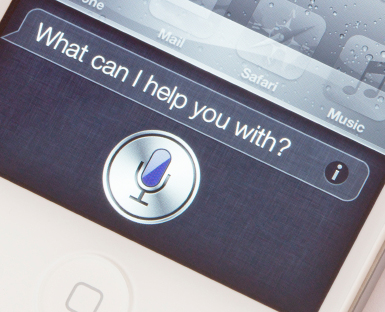Showing 41 posts by Nicholas M. Oertel.
PART 3: New Michigan Law Permits Intrastate Crowdfunding
 Part 1 and 2 of this series discussed the basic requirements that must be met to utilize Michigan’s new intrastate crowdfunding exemption.
Part 1 and 2 of this series discussed the basic requirements that must be met to utilize Michigan’s new intrastate crowdfunding exemption.
This post will discuss the definition of an “accredited investor.” The distinction between accredited and non-accredited investors is important. Non-accredited investors cannot invest more than $10,000 under Michigan’s new intrastate crowdfunding exemption. Accredited investors, on the other hand, are not subject to the $10,000 investment cap. Read More ›
Categories: Crowdfunding, Venture Capital/Funding
Part 2: New Michigan Law Permits Intrastate Crowdfunding
 Part 1 of this series discussed the 12 basic requirements that must be met to utilize Michigan’s new intrastate crowdfunding exemption.
Part 1 of this series discussed the 12 basic requirements that must be met to utilize Michigan’s new intrastate crowdfunding exemption.
This post will take a deeper look at Requirement 2. As noted in Part 1, Requirement 2 states that the offer must meet the requirements for the federal exemption for intrastate offerings under Section 3(a)(11) of the Securities Act of 1933 (the “1933 Act”). Read More ›
Categories: Crowdfunding, Venture Capital/Funding
New Michigan Law Permits Intrastate Crowdfunding
 Note: This post is Part 1 of a multi-part series regarding Michigan's new crowdfunding law
Note: This post is Part 1 of a multi-part series regarding Michigan's new crowdfunding law
It's official, crowdfunding is legal in Michigan. So, what does that mean for your business? Let's start with the basics.
Federal and state law prohibit a business from selling a security unless: (A) the security is registered with the SEC, or (B) an exemption from registration is applicable. Registration is expensive, so nearly all businesses try to satisfy an exemption from registration. Historical exemptions have made it difficult for businesses to receive investment from "non-accredited" investors and flat out prohibit "general solicitation" (i.e., public advertising of the investment, including advertising on the Internet). Those historical difficulties, however, have recently been eased. Read More ›
Categories: Crowdfunding, Venture Capital/Funding
How Secure Is Your Cloud?
 Business owners are increasingly turning to cloud storage as an alternative to maintaining their own servers. The three most popular cloud storage services are Dropbox, Google Drive and SkyDrive. Each service comes with a specific amount of free storage and allows users to upgrade for a fee. For a helpful comparison of these three choices, see here. Cloud storage providers are promising upgraded security, but there are certain steps business owners can take themselves to protect their data. Read More ›
Business owners are increasingly turning to cloud storage as an alternative to maintaining their own servers. The three most popular cloud storage services are Dropbox, Google Drive and SkyDrive. Each service comes with a specific amount of free storage and allows users to upgrade for a fee. For a helpful comparison of these three choices, see here. Cloud storage providers are promising upgraded security, but there are certain steps business owners can take themselves to protect their data. Read More ›
Categories: Cloud Computing, Privacy
BYOD: Balancing Data Security with Employee Privacy
 The days of carrying around a work phone and personal phone are quickly dwindling, if not already gone. Instead, businesses are implementing bring-your-own-device ("BYOD") policies that allow employees to access corporate information from their personal mobile device. On one hand, providing employees with mobile access to information increases productivity by allowing employees to work from anywhere. On the other hand, allowing corporate information to be accessed on devices that are mobile and capable of falling into the wrong hands produces a host of new security issues. This creates a difficult balancing act for employers who want their employees to be productive, but still want to maintain control over the information being accessed. Read More ›
The days of carrying around a work phone and personal phone are quickly dwindling, if not already gone. Instead, businesses are implementing bring-your-own-device ("BYOD") policies that allow employees to access corporate information from their personal mobile device. On one hand, providing employees with mobile access to information increases productivity by allowing employees to work from anywhere. On the other hand, allowing corporate information to be accessed on devices that are mobile and capable of falling into the wrong hands produces a host of new security issues. This creates a difficult balancing act for employers who want their employees to be productive, but still want to maintain control over the information being accessed. Read More ›
Categories: Employment, Privacy
XG Sciences Announces New Battery Anode with Four Times the Capacity of Conventional Materials
 Lansing-based XG Sciences, Inc. has launched a new generation of anode materials for lithium-ion batteries with four times the capacity of conventional anodes. The new anode material is produced through proprietary manufacturing processes and uses XG’s xGnP® grapheme nanoplatelets to stabilize silicon particles in a nano-engineered composite structure. The material displays dramatically improved charge storage capacity with good cycle life and high efficiencies.
Lansing-based XG Sciences, Inc. has launched a new generation of anode materials for lithium-ion batteries with four times the capacity of conventional anodes. The new anode material is produced through proprietary manufacturing processes and uses XG’s xGnP® grapheme nanoplatelets to stabilize silicon particles in a nano-engineered composite structure. The material displays dramatically improved charge storage capacity with good cycle life and high efficiencies.
This is great news for applications like smartphones, tablet computers, and other products that use rechargeable lithium-ion batteries. XG is working with battery makers to translate this exciting new technology into batteries with longer run-time, faster charging capabilities, and smaller sizes.
Click here for more information about this exciting development.
Categories: Intellectual Property, Trade Secrets
White House Decrees Free Access to Government Research
The White House has declared that the results of government funded research, with certain exceptions for classified data, will be available to the public for free within in a year. Such results include peer-reviewed publications and digital data. Read More ›
Categories: News
Michigan’s New Law Protects Online Privacy
 Michigan’s new law, the Internet Privacy Protection Act (IPPA), protects employees, potential employees, students and applicants from giving employers and educators access to their personal social media accounts. Under the new law, accounts such as Gmail, Facebook, Twitter, Tumblr or Twitter are covered. Employers and school administrators can’t discharge, fail to hire or admit or otherwise penalize their current or potential employees or students for refusing their request. Read More ›
Michigan’s new law, the Internet Privacy Protection Act (IPPA), protects employees, potential employees, students and applicants from giving employers and educators access to their personal social media accounts. Under the new law, accounts such as Gmail, Facebook, Twitter, Tumblr or Twitter are covered. Employers and school administrators can’t discharge, fail to hire or admit or otherwise penalize their current or potential employees or students for refusing their request. Read More ›
Categories: Employment, Privacy
Your Garage Sale could be at risk
 It might be illegal to sell those treasures.
It might be illegal to sell those treasures.
The excitement of the hunt for the perfect item at the flea market or the thrill of selling your relative’s antique lamp at a great price could soon be dimmed by the Supreme Court of the United States. Read More ›
Categories: Copyright, Intellectual Property
Does Apple’s Siri Record and Store Everything You Say?
 Many people love having an application on their iPhone that can convert nearly anything they say into text. But what does Apple do with what you say to Siri?
Many people love having an application on their iPhone that can convert nearly anything they say into text. But what does Apple do with what you say to Siri?
Most people are unaware that everything you say to Siri is sent to a data center in North Carolina. It is sent to Apple in order to convert what you say into text. Read More ›
Categories: Privacy
Categories
- Alerts and Updates
- Employee Benefits
- Venture Capital/Funding
- Chapter 11
- Defamation
- Technology
- Trademarks
- Sales Tax
- Lawsuit
- Corporate Transparency Act (CTA)
- Intellectual Property
- Labor Relations
- E-Commerce
- Trade Secrets
- Entity Selection, Organization & Planning
- Hospitals
- National Labor Relations Board
- Billing/Payment
- Startup
- Mergers & Acquisitions
- Sales/Disputes
- Crowdfunding
- Patents
- Domain Name Registration
- Did you Know?
- Tax
- Tax Disputes
- Legislative Updates
- Estate Planning
- Liability
- Fraud & Abuse
- Personal Publicity Rights
- Employment
- IT Contracts
- Distribution
- Social Media
- Compliance
- HIPAA
- Retirement
- Hospice
- Department of Labor
- Artificial Intelligence (AI)
- Criminal
- Entity Planning
- Cloud Computing
- Inspirational
- Contracts
- Privacy
- Cybersecurity
- Insurance
- Financing
- Copyright
- Elder Law
- Electronic Health Records
- Digital Assets
- News
- Licensing
- Regulations



 Share
Share